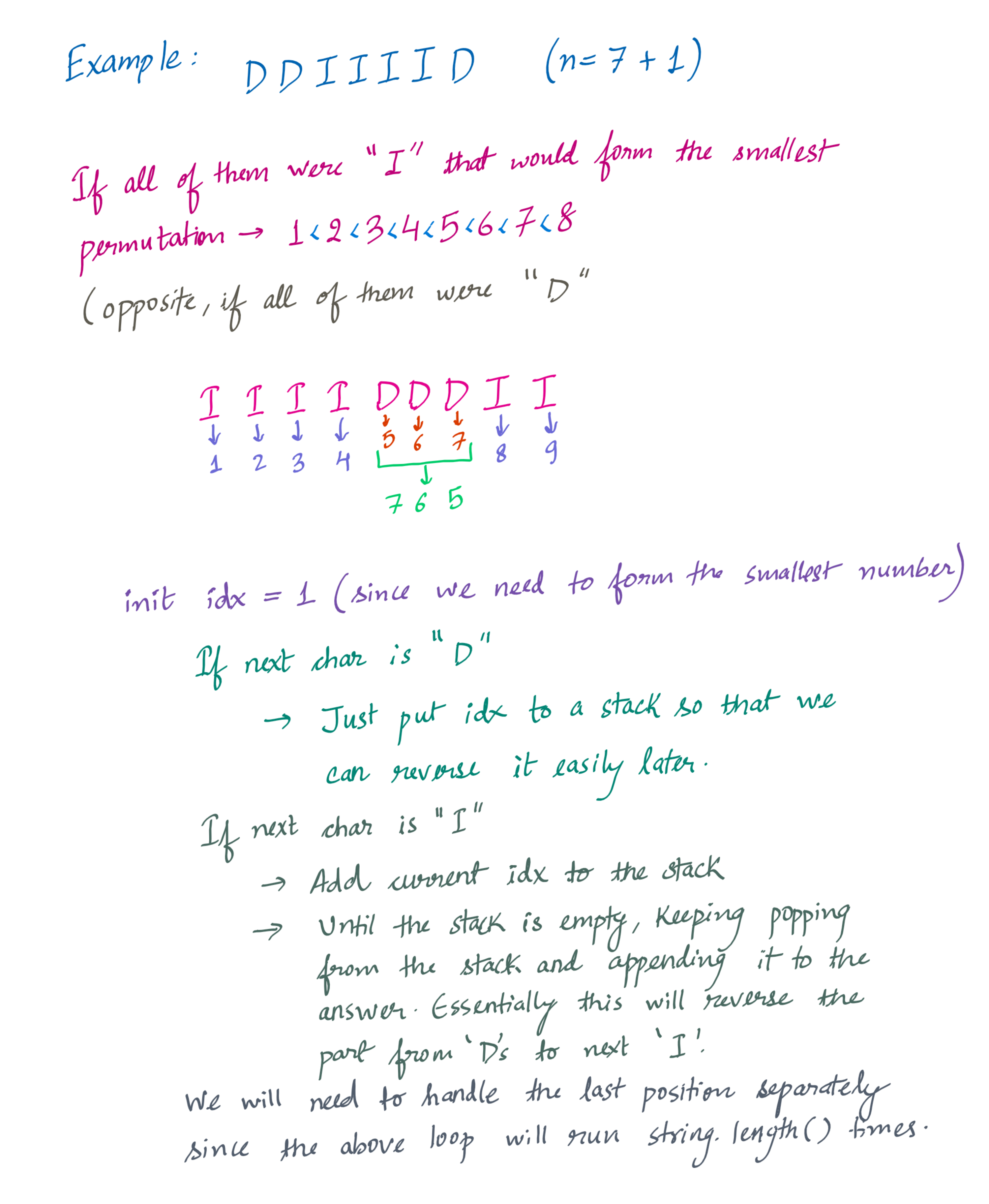PROBLEM DESCRIPTION
A permutation perm of n integers of all the integers in the range [1, n] can be represented as a string s of length n - 1 where:
s[i] == 'I'ifperm[i] < perm[i + 1], ands[i] == 'D'ifperm[i] > perm[i + 1.
Given a string s, reconstruct the lexicographically smallest permutation perm and return it.
SOLUTION

1
2
3
4
5
6
7
8
9
10
11
12
13
14
15
16
17
18
19
20
21
22
23
24
25
26
27
28
29
30
31
32
33
34
35
36
37
38
39
40
41
42
43
44
45
46
47
48
49
50
51
52
class Solution {
public int[] findPermutation(String s) {
// Create an array to store the result permutation.
int[] ans = new int[s.length() + 1];
// Create a stack to help construct the permutation.
Stack<Integer> stack = new Stack<>();
// Initialize an index to keep track of the position in the result permutation. (the next number to be added)
int position = 0;
// Initialize a variable to represent the current number being considered for the permutation.
int idx = 1;
// Iterate through the characters in the input string 's'.
for (int i = 0; i < s.length(); i++) {
// Push the current number 'idx' onto the stack.
stack.push(idx);
// Get the current character at position 'i'.
Character ch = s.charAt(i);
// If the character is 'I', it indicates that we need to find increasing sequence.
if (ch == 'I') {
// Pop numbers from the stack and place them in the result permutation (essentially reversing the numbers from DDDDD...I)
while (!stack.isEmpty()) {
ans[position] = stack.pop();
position++;
}
}
// If the character is 'D', we only need to add it to the stack which is already done
// Increment the current number 'idx'.
idx++;
}
// The previous loop run s.length() times. there will be at least one position left to be filled. It can be more, if there were more Ds at the end
// For example: IIIIDDDDDD (at the end, since I was never encountered, the number added to stack after Ds are left to be appended to the answer)
stack.push(idx);
while (!stack.isEmpty()) {
ans[position] = stack.pop();
position++;
}
return ans;
}
}
